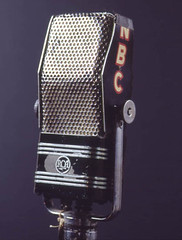
I am currently sitting at my desk at my second job (Ministry doesn't often pay the bills) and am about to go insane with boredom. Things are so slow here that my co-workers and I have spent the last five hours killing time on the internet. I would like to share with you a little treasure I found during this time. It's a poem. It's a really bad poem. I left all the spelling and grammar errors alone. They're part of the fun. Here it is. (Seriously, it's abysmal)
Jenny was so happy about the house they had found.
For once in her life it was on the right side of town.
She unpacked her things with such great ease.
As she watched her new curtains blow in breeze.
How wonderful it was to have her own room.
School would be starting, she'd have friends over soon.
There'd be sleep-overs, and parties; she was so happy
It's just the way she wanted her life to be.
On the first day of school, everything went great.
She made new friends and even got a date!
She thought, "I want to be popular and I'm going to be,
Because I just got a date with the star of the team!"
To be known in this school you had to have a clout,
And dating this guy would sure help her out.
There was only one problem stopping her fate.
Her parents had said she was too young to date.
"Well, I just won't tell them the entire truth.
They won't know the difference; what's there to lose?"
Jenny asked to stay with her friends that night.
Her parents frowned but said, "All right."
Excited, she got ready for the big event
But as she rushed around like she had no sense,
She began to feel guilty about all the lies,
But what's a pizza, a party, and moonlight ride?
Well, the pizza was good, and the party was great,
But the moonlight ride would have to wait.
For Jeff was half drunk by this time.
But he kissed her and said that he was just fine.
Then the room filled with smoke and Jeff took a puff.
Jenny couldn't believe he was smoking that stuff.
Now Jeff was ready to ride to the point
But only after he'd smoked another joint.
They jumped in the car for a moonlight ride,
Not thinking that he was too drunk to drive.
They finally made it to the point at last,
And Jeff started trying to make a pass.
A pass is not what jenny wanted at all
(and by a pass, I don't mean playing football).
"Perhaps my parents were right ... maybe I am too young.
Boy, how could I ever, ever be so dumb.
With all her might, she pushed Jeff say away:
"Please take me home, I don't want to stay."
Jeff cranked up the engine and floored the gas.
In a matter of seconds they were going too fast.
As Jeff drove on in a fit of wild anger,
Jenny knew that her life was in danger.
She begged and pleaded for him to slow down,
But he just got faster as they neared the town.
"Just let me go home! I'll confess that I lied.
I really went out for a moonlight ride."
Then all of a sudden, she saw a big flash.
"Oh God, Please help us! We're going to crash!"
She doesn't remember the force of the impact.
Just that everything all of a sudden went black.
She felt someone remove her from the twisted rubble,
And heard, " Call an ambulance! There kids are in trouble!"
Voices she heard.... A few words at best.
But she knew there were two cars involved in the wreck.
Then wondered to herself if Jeff was all right,
And if the people in the other car were alive.
She awoke in the hospital to faces so sad.
"You've been in a wreck and it looks pretty bad."
These voices echoed inside her head,
As they gently told her that Jeff was dead.
They said "Jenny, we've done all we can do.
But it looks as if we'll lose you too."
"But the people in the other car?" Jenny cried.
"We're sorry, Jenny, they also died."
Jenny prayed, "God, forgive me for what I've done
I only wanted to have just one night of fun."
"Tell those people's family, I've made their lives dim,
And wish I could return their families to them."
"Tell Mom and Dad I'm sorry I lied,
And that it's my fault so many have died.
Oh, nurse, won't you please tell them that for me?
The nurse just stood there — she never agreed.
But took Jenny's hand with tears in her eyes.
And a few moments later Jenny died.
A man asked the nurse, " Why didn't you do your best
To bid that girl her one last request?"
She looked at the man
with eyes so sad.
"Because the people in the other car
were her Mom and Dad."
I laughed out loud and gagged simultaneously upon reading the ending. I think I will share this with my youth group next Wednesday.
"So children, obey your parents in the Lord, for this is right -"
"Yeah, because it's the first commandment with a promise."
"Good. You know what that promise is?"
"What?"
"If you don't you will murder them and then die slowly."
"Oh."
"Now go in peace to serve our Lord and Savior Jesus Christ."


